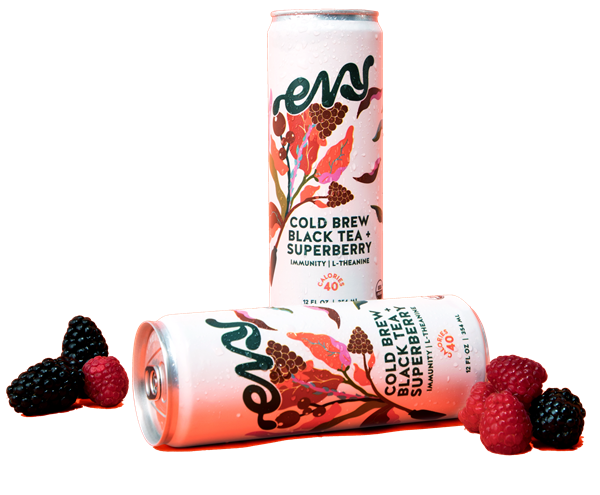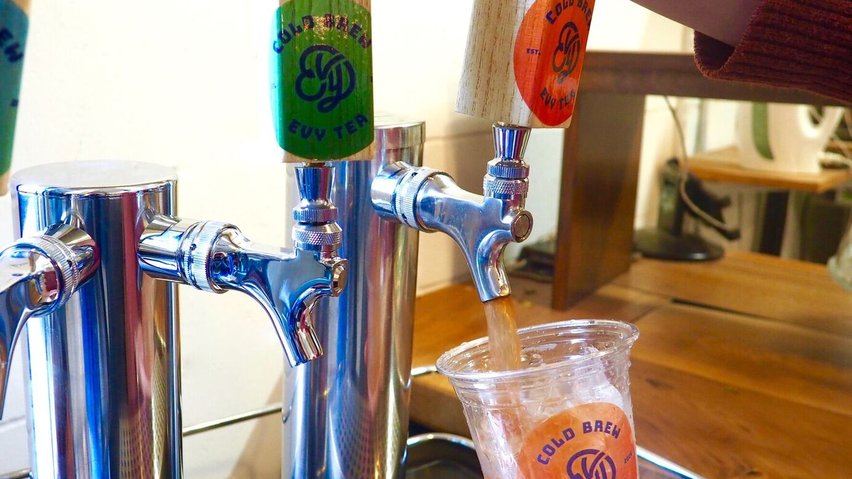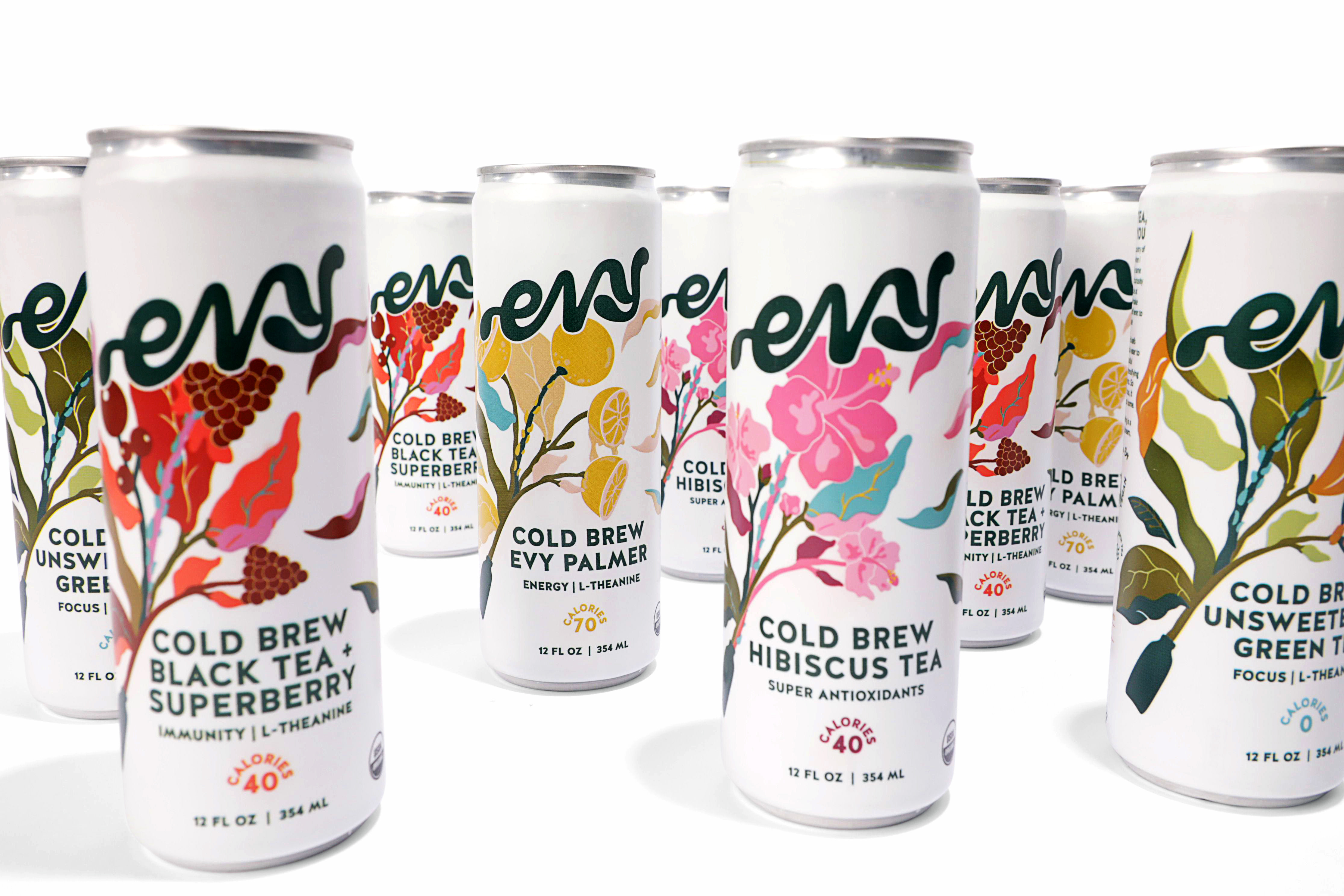In November Luxemburg-based private equity firm CVC Capital Partners, with investments totaling more than $100 billion, out-bid several competitors to acquire Unilever’s tea portfolio, re-branded as ekaterra tea. Lipton Yellow Label, Brooke Bond, Lyons, PG Tips, and 30 more tea brands, many regional, have a combined turnover of $2.3 billion (€2 billion). The agreement is subject to regulatory review and will not close for several months, but there is no time to waste as CEO John Davison takes on the task of re-energizing the largest tea company in the world.
- Caption: John Davison was the only passenger on the plane from Singapore to Judah, Saudi Arabia
Hear the interview

Re-energizing the World’s Largest Tea Company
By Dan Bolton
The Singapore sun is high and the room alabaster bright when ekaterra tea CEO John Davison answers the Zoom call. It is the dark of night and snowing heavily outside my Winnipeg window in central Canada. Davison, 58, is energized. Singapore was quick to instituted mass lockdowns in early 2020, becoming one of Asia’s most stringent COVID-zero economies, largely sealing off its borders, and testing. After 18 months of isolation Davison has just returned from the COP26 Glasgow Climate Summit in Scotland and would soon depart for Judah, Saudi Arabia and to visit the company’s massive tea packaging operation in Jebal Ali, near Dubai, UAE.
In March 2021 Davison was named to oversee a “carve-out” of the least desirable tea brands from the Unilever portfolio. Unilever CEO Alan Jope announced in January 2021 that the company would jettison underperforming legacy brands Lipton, PG Tips, Lyons, Brooke Bond, Red Rose ? all black tea stalwarts acquired in the 1980s and 1990s ? along with more recently acquired and fiscally promising T2 retail in Australia, TAZO, an American packaged good brand formerly owned by Starbucks, and Pukka, a fast-growing herbal tea brand founded in 2001 in a home kitchen in Bristol.
Davison spent his first nine months at Unilever reorganizing billions in assets including 11 factories across four continents that employ 4,000 workers doing business in more than 100 countries. A big portion of Unilever’s suppliers and partners will transition to ekaterra at the close of the sale. Ekaterra will operate company owned tea estates in Kenya, Rwanda, and Tanzania and contract with thousands providing a livelihood for one million people.
Davison, a Harvard Business School Graduate with a master’s from the University of Cambridge, spent five years at Diago as a strategy director during the merger with Guinness and worked for 11 years as a senior executive with Danone. His last job was managing the Asian division of Zuellig Pharma, a $13 billion global leader in pharmaceutical distribution. After leading a turnaround that he initiated in 2014, Davison spent the first year and a half of the pandemic focused exclusively on resolving formidable distribution challenges brought by COVID-19.
Unilever, ranked 175 on the Fortune 500 with 400 brands and turnover of $58 billion, kept its most profitable and fast-growth tea gardens and factories in India, Nepal, and Indonesia and in North America remains in a joint venture with PepsiCo to manufacture and market Lipton tea in bottles and cans. The portfolio’s remnants are expected to generate more than $800 million annually, making it the world’s fourth largest tea company, according to Euromonitor.
One man’s cast off is another man’s treasure. Davison is eager to make the most of CVC Capital’s $5.1 billion investment.
Dan Bolton: John, when a private equity firm puts $5 billion to work they expect sizeable returns. In general, two patterns have emerged, one in which the management team cuts their way to profitability, trimming staff, investing in automation, and introducing efficiencies. The second is spurring growth.
John Davison: Why would a company like CVC want, as you say, to invest $5 billion in taking ekaterra out of Unilever?
It boils down to three key points: Number one, it’s a growth category. Tea is on trend, I think COVID, if anything has reinforced the dynamics that tea is a healthy beverage. It has a lot of medicinal qualities, as you well know, in terms of heart health, digestion, you name it. Investors like to be in categories that are on trend and have long term potential.
Secondly, if you look at ekaterra, we are the largest, by some stretch, I think three times larger than the next player. So, we have a leadership position. That leadership stretches across 10s and 10s of markets ? 3,040 different markets. It’s not been something we’ve built on and really capitalized on.
I think Capital Partners, CVC has seen that opportunity to capitalize and drive that leadership position to greater heights and with that bring the category into faster growth. That’s the second big reason, the strength of our competitive position, relative to the rest of the peer group in the industry.
The third thing is the management team. I’m the rookie and just joined nine months ago, but the team we’ve put together in at ekaterra is highly experienced. Our R&D team is really strong. We have 3,540 tea tasters. When you put all that organization together, on top of a great brand portfolio in a growing category, it’s clear to see why CVC or anyone else would be interested in investing in the business.
Now that said, we’ve now got to deliver on all the promise to your point. And that will be something top of mind as we start to engage with our future owners. And of course, these transactions take time to go through the process. There’s a few months now of anti-trust filings, regulatory processes and approvals to go. We won’t see the close of this deal probably till mid next year.
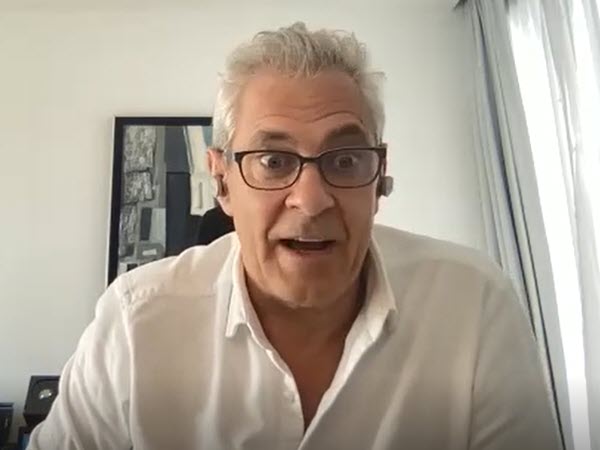
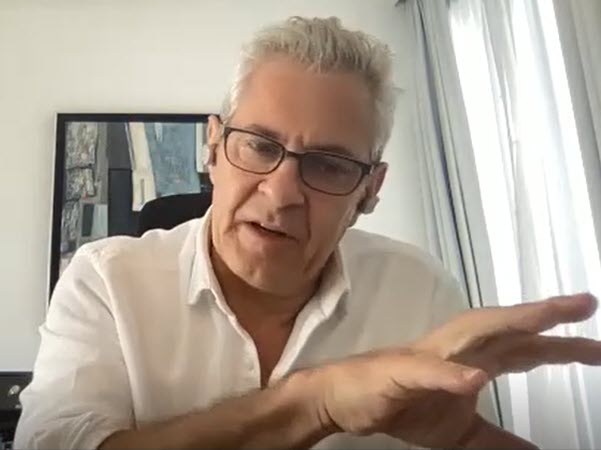
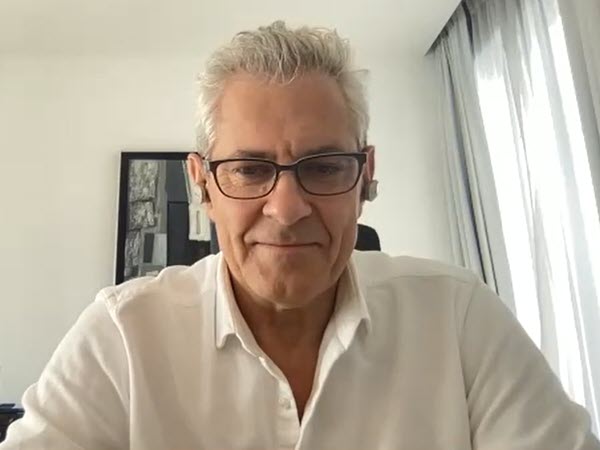
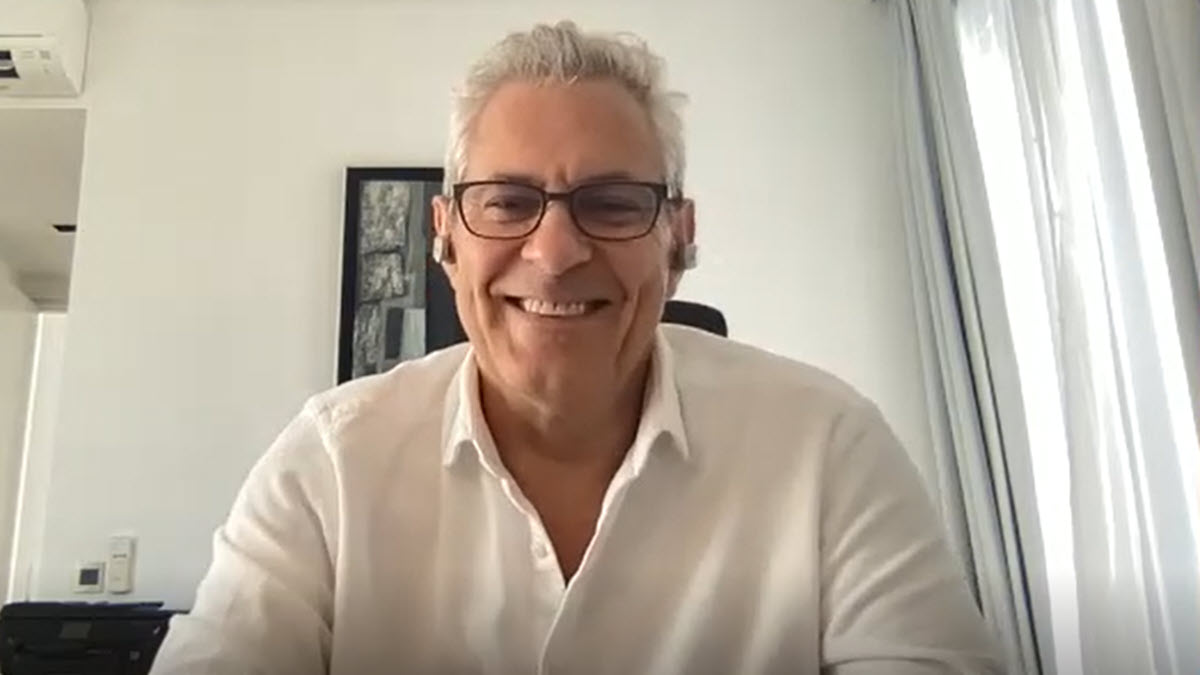
Dan: At COP26 you sent a clear message that sustainable tea at large scale is doable. So, do you intend to be a tea company that is ethically mindful? Or an ethical firm that sells tea?
John: That’s a trick question. I think you can be ethically mindful and kind of watch from the sidelines, right?
We need to get in the game and drive the rules of the game. I don’t mean that in a threatening way, I think part of the reason we wanted to step out at COP26 was to make that point, which is that the status quo ? having a nice program to share with your customers and partners and consumers ? probably isn’t enough at this stage.
If we don’t get beyond that, towards driving real change, and not just change inside of our business system, but industry wide, as well as with consumers, in 10 years time we’ll be really panicking about what we can do to reverse things that are probably irreversible by that stage.
We need to get beyond watching and following. We need to get into the game and lead. We have the technologies discussed by the Ethical Tea Partnership, and a bunch of new technologies that are in development that were mentioned at COP26.
We need to deploy that technology as soon as possible into pilots, which we’re doing. And as soon as we get them into pilot, we need to get them into action on our own tea estates and as soon as possible thereafter, broaden that to the entire supply base. And as soon as possible thereafter, the entire supply base of the industry. If there are technologies that can help other players, you know, I think we need to make them available. There’s no point in jealously guarding a technology that you deploy to 5% of the tea crop of the world, if 50% of the tea in the entire world is at risk.
We need to develop proper resilience in climatic challenging circumstances, which you know, are becoming more and more difficult, as you said earlier, already affecting crop yields.
If we can get these technologies properly piloted and properly rolled out, then we should be able to help our tea farmers manage much more productively much more resiliently in the face of real dramatic climate change. And that can only be a good thing, not only for ourselves, but for them and for the industry. And that’s something we’re going to work very hard to deliver.
So, in that sense I think the answer to your question is that we need to be both an ethical company, as well as a tea company acting ethically.
Unilever already set us on a wonderful course. It’s a great company. I think in many respects, we’re sorry to be leaving, and they are sorry to be losing us. But at the same time, it is for the best reasons to give us this chance to drive a leadership that I think would be difficult to do inside such a large multinational.

Davison taking tea with the ekaterra staff
Jebel Ali
United Arab Emirates
Dan: So, let’s talk about the core product. In this case, making tea that people are willing to pay a premium price to drink. I don’t think any brand wants to be known for making tea so heavily discounted that it is perceived as cheap or market blends that taste worse than in years past. Ekaterra tea inherits several brands on the rise, market leaders in 58 regions, but in the west sales are stagnant.
Senior Beverage Consultant Matthew Barry at Euromonitor writes that “mass-market black tea bags are in consistent decline in nearly all developed markets. Unilever saw retail sales of black tea decline by $27 million from 2015 to 2020 in these countries, even with the benefit of a large 2020 pandemic-related retail spike.”
Last year Unilever CEO Alan Jope set the dominoes in motion by declaring “insanity is carrying on doing the same thing and looking for different outcomes, and for 10 years we have been trying to ignite growth into our tea business unsuccessfully.” Black tea drinkers were blamed for getting older and starting to fall over, and that is the fundamental problem… said Jope, “younger consumers are looking for novel experiences, and the consumer of ‘builders’ tea’ was someone who was born out of habit and was not into experimentation and trying new products.”
I know from personal experience tea quality is an issue. Do you agree? And what are you going to do to make better tea?
John: The tea category within Unilever has been subject to a focus on bringing down costs to manage exactly what you described, declining pricing or stagnant pricing in the market. Any multinational would probably deal with that kind of spiral of decline on value by R&D engineering the product, so I think certain things we are absolutely going to put right very quickly. Other things may take longer to fix.
We’re going to work very hard at making sure we get our blends back to the top of the tree, in terms of quality and in terms of value to consumers. We can’t live in an industry if we are the leader in that industry, with second rate teas or teas that are not absolutely the best they can possibly be.
So, I think we’ve got a job still to do. We started that program in the last 12 to 18 months before I showed up and it’s something that we’re now accelerating. That will require clear investments in certain key areas, but also in the way we communicate benefits to consumers. I don’t think we’ve done a very good job on that, either. Historically, I think we’ve tended to pull back on consumer communications. And we’ve not played the powerful cards we have in our portfolio.
“We’re going to work very hard at making sure we get our blends back to the top of the tree, in terms of quality and in terms of value to consumers. We can’t live in an industry if we are the leader with second rate teas or teas that are not absolutely the best they can possibly be.”
– John Davison
Dan: When asked by the online polling site YouGov, consumers say they are willing to pay more for products that are sustainable, and to reward manufacturers who close the loop; traders who reduce transit emissions and growers who conserve water and regenerate soil. So, on one hand we have a price premium of perhaps 20-30% at retail. The premium is similar to that paid for organic goods and by consumers who have demonstrated their willingness to pay more for fair trade goods.
On the other hand, tea manufacturers face significant additional costs to cultivate and process premium tea. There is the expense of adapting to a changing climate, costs to comply with requirements set by third party certifiers, new equipment and more expensive plant-based tea bags and earth-friendly packaging, and set-asides to pay for carbon credits. Is the premium consumers are willing to pay sufficient to cover the cost of sustainable production? The desire is there, and there’s money on the table, can you operate ekaterra tea in a way that it’s both sustainable and profitable?
John: That’s a great question. I think sustainability, and ESG [Environmental, Social, and Governance] philosophies and beliefs are at different stages of development and relevance in different parts of the world. At COP26, you could absolutely feel that the world’s eyes were on everything that was happening. But it’s a difficult balance to strike.
I would like to believe consumers would sit down and say, ‘yeah, we understand all the packaging, we understand all the accreditations, we get it, here’s an extra 20%, 30%, no problem.’ But I don’t believe that’s going to happen overnight. And I don’t believe that will happen across the world, I think it may happen in certain societies. But it’s not going to be a wholesale phenomenon at this stage, maybe hopefully, in years to come.
Which means we develop sound business cases to surround the decisions we take to drive a more sustainable approach to business process.
This is why technology R&D is so important, because to remove plastic from your packaging, you must put in an investment to machines and the X number of factors needed to make that happen.
If you had the technology to design a fully recyclable or biodegradable pack instead, one that can be made at a lower unit cost, then that’s a win-win.
But there will be moments where we have to make tough decisions and say, ‘there’s an extra capex’ [capital expenditure] to fit this factory to be able to do X, Y, and Zed in a completely different way.
I think we’ve got to be courageous enough to make those decisions and figure out how to make the pay back with or without the 20% to 30% extra help from the consumer.
Right now, and you hear this from anyone you interview in consumer products, or any product category, there’s an enormous escalation in input costs, not only from commodity crops, but also from logistics supply chain, from packaging, all over the world, big tidal wave effects coming out of COVID and the disruption caused to the planet. We’re digesting those changes, as well as thinking ahead how we motor on, on climate change.
It’s a VUCA world [Volatility, Uncertainty, Complexity and Ambiguity] a lot of volatility, a lot of uncertainty. Because we’ve generally operated in so many different economies with those kinds of unusually volatile trends, historically, I think we’ve got a team that’s pretty creative, pretty versatile, and is well equipped to deal with challenges that often contradict each other.
That’s why we are employed to do what we do, if it was that straightforward, it wouldn’t be challenging. It wouldn’t be fun. It wouldn’t be the adventure it is to be in this business.

- Related
- CVC Capital Pays $5.1 Billion for Unilever Tea Portfolio
Ekaterra Tea Pledges Net Zero Emissions by 2030 at COP26 - Ekaterra C.E.O. Intends to Grow not Scythe CVC’s Tea Portfolio
Link to share this post with your colleagues
Signup and receive Tea Biz weekly in your inbox.
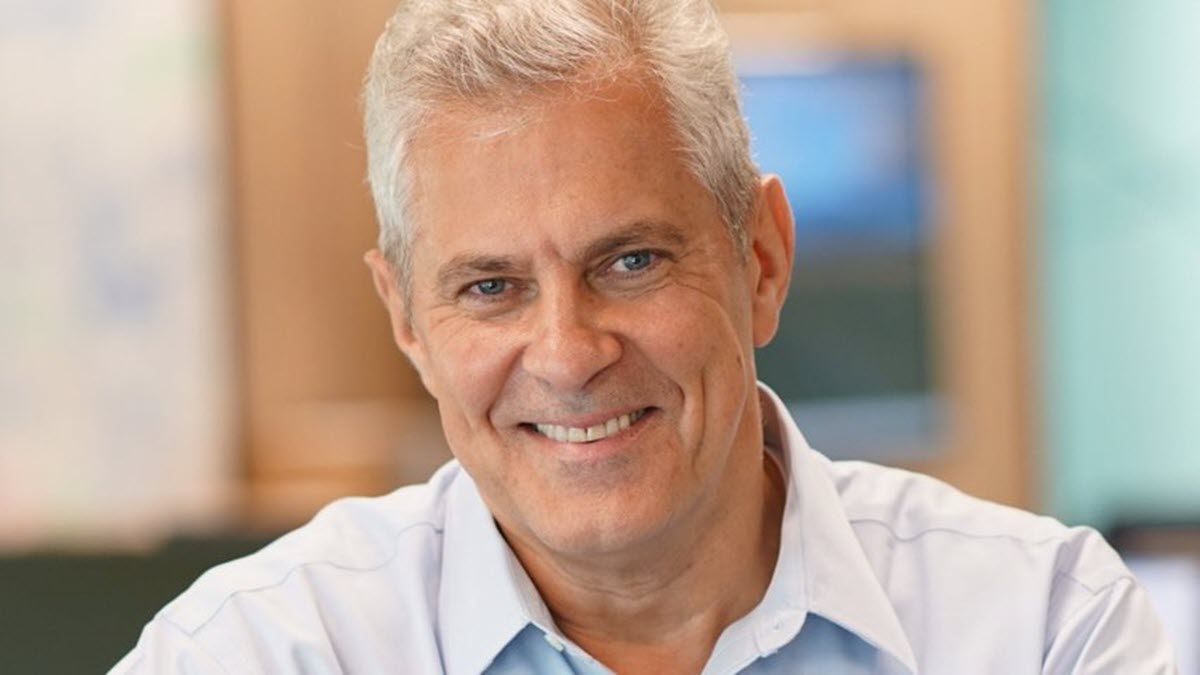
Never miss an episode
Subscribe wherever you enjoy podcasts:





